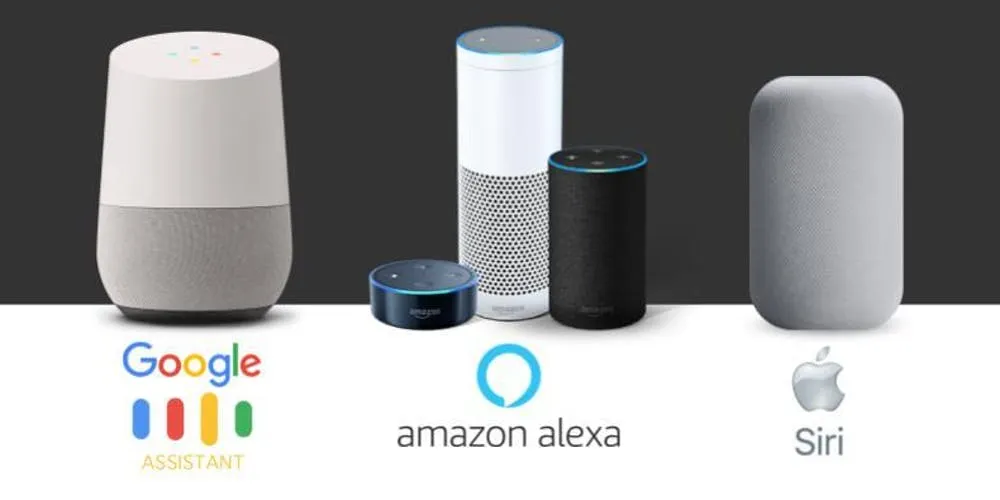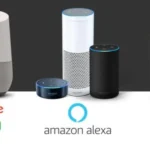Now Reading: Voice Assistants Today: Alexa vs. Google Assistant vs. Siri
-
01
Voice Assistants Today: Alexa vs. Google Assistant vs. Siri
Voice Assistants Today: Alexa vs. Google Assistant vs. Siri

Voice assistants once felt futuristic; now they’re woven into our daily lives—smart homes, smartphones, and beyond. Major players—Amazon’s Alexa, Google Assistant, and Apple’s Siri—compete to dominate this space. Let’s dissect their strengths, weaknesses, effectiveness, and how they fare across languages.
1. Accuracy & Responsiveness: Who Understands You Best?
A comparative test involving 800 questions revealed that:
- Google Assistant answered 93% correctly.
- Siri managed 83%.
- Alexa trailed with 80% accuracy.
That performance edge underscores Google Assistant’s superior NLP (Natural Language Processing) and information processing capabilities. Alexa and Siri lag in overall comprehension and accuracy.
2. Ecosystem Strengths and Integration
Amazon Alexa
- Deeply embedded in the Amazon ecosystem—and especially strong for voice shopping.
- Extensive third-party support via thousands of “skills” extends functionality—from home automation to games.
Google Assistant
- Tightly integrated with Google’s services—Search, Maps, YouTube, Gmail.
- New Gemini for Home, rolling out from October 2025, brings advanced conversational AI with fewer wake-word needs and improved context comprehension.
- Google’s AI, Gemini, is also replacing Bixby on Samsung devices—cementing its reach across hardware.
Apple Siri
- Seamless sync across the Apple ecosystem—iPhones, iPads, Macs, Apple Watch.
- Known for privacy, but its functionality and AI flexibility lag behind the competition.
Apple is even exploring integration with Google’s Gemini model to boost Siri—a sign of struggle to catch up.
3. Smart Home & Cross-Platform Use
- Both Alexa and Google Assistant deliver robust control for smart devices—they work across smartphones, smart speakers, and in-car systems.
- Alexa shines with Amazon hardware and shopping features.
- Google Assistant offers better contextual multitasking and ties tightly into Android and Google services.
Siri functions well within Apple’s unified environment but remains weaker in third-party smart home compatibility.
4. Advanced AI & Conversation
- Gemini for Home elevates Google Assistant’s conversational depth—no constant “Hey Google” wake words needed, plus smarter task reasoning and follow-up.
- Alexa remains a classic voice interface—is still great for simple tasks but less capable in nuanced, context-aware interactions.
- Siri continues to lag behind in conversational complexity, though improvements are underway.
5. Privacy, Trust & Ethics
All voice assistants raise privacy questions, though each struggles differently:
- Amazon Alexa records after wake word, stores audio in cloud, and has raised privacy alarms around constant listening.
- Google Assistant also stores transcripts and uses them for personalization (opt-in), with past controversies over background recording.
- Siri claims to use transcripts rather than full audio, with opt-in possibilities—but its grading system has previously exposed private recordings.
Security researchers also warn about vulnerabilities in speaker authentication, potential breaches, and lack of usability in privacy protection.
6. Language & Accessibility Challenges
Language barriers remain a key pain point, especially for non-native speakers:
- A study found non-native English users with voice assistants (e.g., Google Assistant) shifted to smartphone use because they needed visual feedback to interpret responses.
- Siri historically used a default female tone—sparking discussions around gender bias. Apple has added accents and voices, but representation issues persist.
- All assistants now support multiple languages—Alexa supports Hindi, Arabic, and others; Google Assistant spans 30+ languages and over 90 regions; Siri offers varied accent options.
Still, comprehension accuracy can drop for regional dialects or accented speech, hurting adoption and effectiveness in global contexts.
7. Comparison Table: At a Glance
| Assistant | Strengths | Weaknesses |
|---|---|---|
| Google Assistant | Best comprehension (93%), Gemini AI upgrades, deep ecosystem links | Privacy concerns, transition challenges from old Assistant |
| Amazon Alexa | Vast skills library, smart home integration, shopping ease | Lower comprehension (80%), limited conversational AI, privacy risks |
| Apple Siri | Strong privacy reputation, seamless Apple integration | Weaker intelligence and multitasking, language bias issues, limited third-party support |
8. Final Verdict: Which Is the Best Today?
- For smart home versatility or heavy Amazon user → Alexa is compelling—but watch for intelligence and privacy trade-offs.
- For best conversational capability and intelligence → Google Assistant (especially with Gemini) stands out.
- For Apple ecosystem users prioritizing privacy → Siri still makes sense, but watch for upcoming improvements.
Language accessibility remains a hurdle—better visual cues and expanded dialect support could significantly improve usability for non-native speakers globally.
Wrap-Up
In 2025, Google Assistant leads in intelligence and capabilities—especially leveraging the Gemini AI rollout. Alexa offers unmatched device compatibility and shopping convenience but trails in understanding and advanced interaction. Siri delivers close system harmony and privacy but continues to lag behind in AI sophistication. Addressing language diversity and privacy transparency remains critical for all platforms.

























